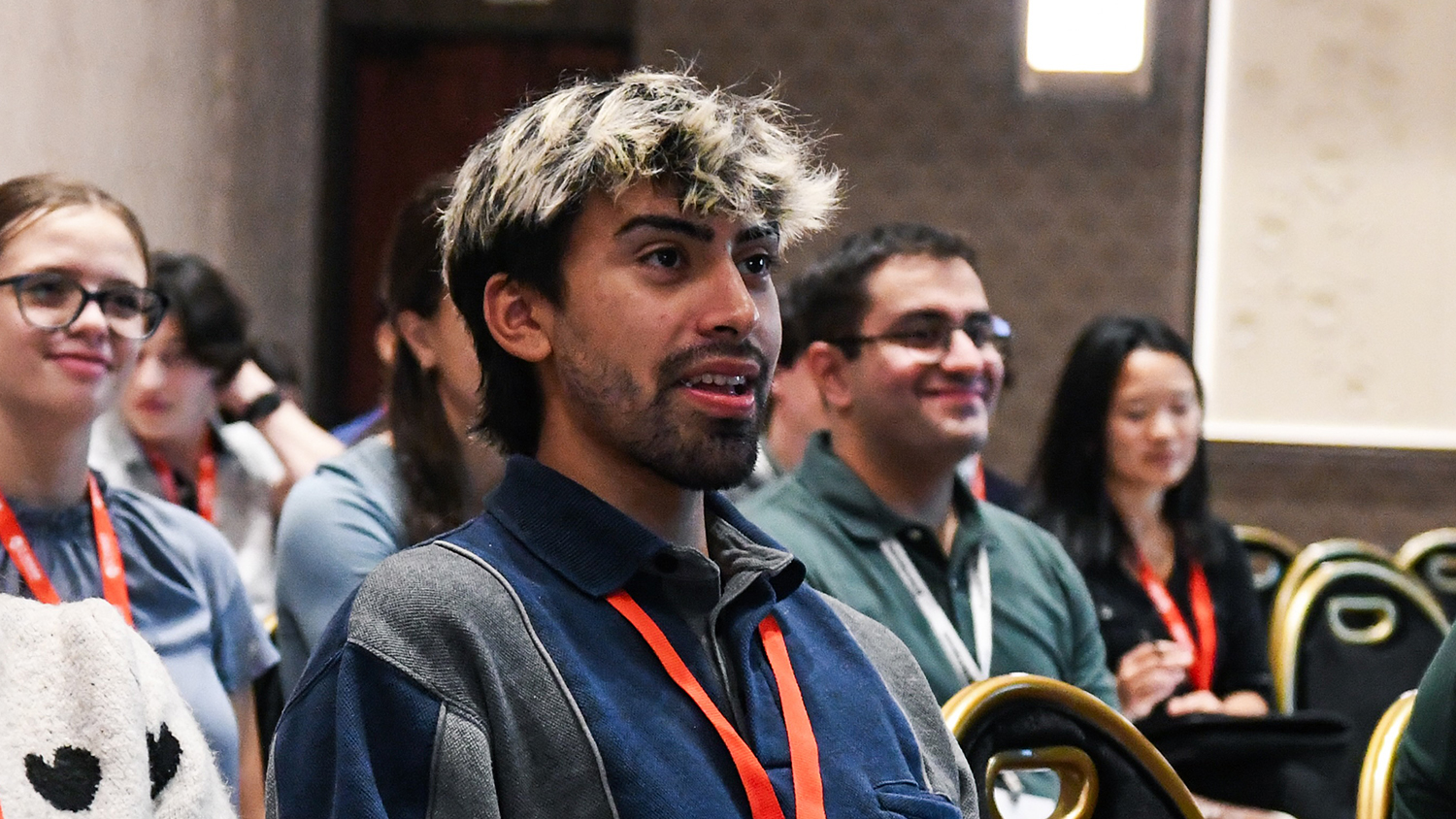Duke and NC State universities announce launch of national K-12 engineering program
RALEIGH, N.C. — A new program designed to stimulate interest in science and technology in students from kindergarten to 12th grade was announced by the engineering deans at Duke University and North Carolina State University Friday during the National Academy of Engineering (NAE) Grand Challenges Summit in Raleigh.
The Grand Challenge K-12 Partners Program will enlist colleges of engineering across the country to serve as community resources for K-12 students, teachers and administrators in their region. Partner colleges would develop age-appropriate engineering materials and curriculum, periodically host regional conferences, and provide ongoing support and professional development for teachers. Partner colleges also will freely share their materials, curriculum and experiences on the national program website.
“We can accomplish so much by introducing engineering at the K-12 level, such as influencing technology literacy early on and cultivating a mindset to address big societal problems,” said Tom Katsouleas, dean of the Pratt School of Engineering at Duke. “We also hope that by teaching youngsters to develop a problem-solving orientation to the world, something we call ‘engineering habits of mind,’ we may also encourage more students to pursue careers in science, technology, engineering and math. That is good for the country.”
The Grand Challenge K-12 Partners Program is designed to focus attention on the Grand Challenges for Engineering in the 21st Century, identified by the NAE in 2008. The Grand Challenges are a critical grouping of problems that must be addressed and solved in order to maintain our national security, quality of life and sustainable future. Examples include making solar energy affordable, engineering better medicines and making clean water available to everyone.
“The Grand Challenges for Engineering provide an important framework for highlighting the critical integrative role that our field plays in enhancing science, technology, engineering and mathematics initiatives nationwide,” said Louis Martin-Vega, dean of the College of Engineering at NC State and former acting head of the Engineering Directorate at the National Science Foundation (NSF), where he worked to find ways to bring engineering into more K-12 classrooms. “The support this initiative will provide to K-12 teachers in program and curriculum development will be especially valuable.”
The Duke team of educators launching this program include Martha Absher, associate dean of outreach and education at Pratt, who founded one of the longest running NSF Research Experiences for Undergraduates program in the U.S.; engineering professor of the practice Gary Ybarra, who already reaches 40,000 students a year through his K-12 science, engineering and math outreach programs; and program coordinator Nancy Shaw, director of the North Carolina Project Lead the Way program.
“The Grand Challenge K-12 Partners Program provides an age and grade appropriate way for K-12 students to understand the Grand Challenges and get involved with them from the earliest levels onward,” says the Duke Team. “As students mature, so will their understanding of and involvement with the engineering Grand Challenges. We feel the Partners Program will have a positive impact on the future of engineering education through this involvement of the K-12 community.”
The NC State team includes Jerome Lavelle, associate dean for academic affairs in the College of Engineering, who leads proposal efforts for increasing access to engineering for students across the UNC and state community college systems and expanding that access into K-12 schools; Laura Bottomley, director of the Engineering Place at NC State, who received a 2009 Presidential Award for Excellence in Science, Mathematics and Engineering Mentoring for leading the college’s K-12 outreach efforts; and Liz Parry, project director for the college’s RAMP-UP education program and the designated trainer for “Engineering is Elementary” curriculum in the southeastern U.S. for the Museum of Science, Boston.
“Bringing engineering into K-12 opens the door to show all students not just those who may eventually study engineering the real relevance of their education and how important subjects like history and algebra are to solving the great problems facing us as a society,” Bottomley said.
Duke and NC State hope to hold the first conference for the Grand Challenge K-12 Partners Program during the 2010-11 academic year. The next several months will be dedicated to reaching out to prospective engineering colleges and schools partners, and to the K-12 educational community. The K-12 focus of the NAE Grand Challenges is expected to gather further momentum at upcoming summits scheduled this spring in Boston (Wellesley, Babson and Olin colleges), Phoenix (Arizona State University), Chicago (Illinois Institute of Technology) and Seattle (University of Washington), culminating in a final summit at the University of Southern California Oct. 6-8.


